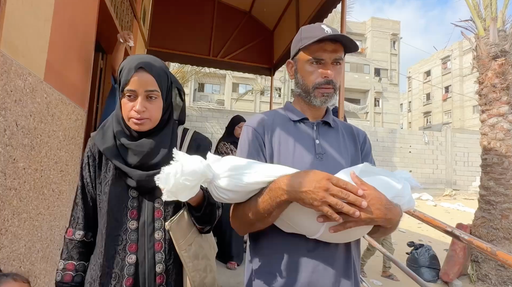Palestinian resistance group Hamas has called the Israeli plan to airdrop limited humanitarian aid over besieged Gaza a “deceptive propaganda move” aimed at whitewashing Israel’s image while continuing to enforce a crippling blockade.
In a statement, the group accused Israel of using aid airdrops and so-called humanitarian corridors to “manage starvation, not end it”, saying the policy exposes civilians to further risk and humiliation instead of ensuring their protection and relief.
“The only way to end Israel’s brutal starvation crime in Gaza is to stop the aggression, lift the siege completely, and open land crossings to guarantee the safe and sustained delivery of aid under UN mechanisms,” the statement said.
The group urged continued international pressure to end the blockade and stop what it described as Israel’s “starvation and genocide campaign,” warning against being misled by Israeli “propaganda.”

‘Limited humanitarian pause’
A so-called “tactical and localised suspension of military operations” announced by Israel became effective on Sunday morning in select areas of Gaza, the Israeli military said.
The suspension began at 10 am local time (0700GMT) in three key areas of Al-Mawasi, Deir al Balah, and Gaza City, covering parts of the central, southern, and northern Gaza, the Israeli army spokesman said, according to the daily Yedioth Ahronoth.
Al-Mawasi is a stretch of sandy coastal territory running from southwest Deir al Balah through western Khan Younis to western Rafah in southern Gaza. It has become a zone where many displaced Palestinians have sought refuge.
The announcement came hours after Israel’s Channel 12 reported that top Israeli leaders, including Prime Minister Benjamin Netanyahu, Defense Minister Israel Katz, and Foreign Minister Gideon Saar, had agreed to a limited humanitarian pause. No exact timeframe was provided for the end of the suspension.
Since May 27, Israel has launched a separate aid distribution initiative through the Gaza Humanitarian Foundation (GHF), bypassing the UN and international humanitarian agencies. The move has been widely rejected by the global relief community. The GHF is supported by the US.




















